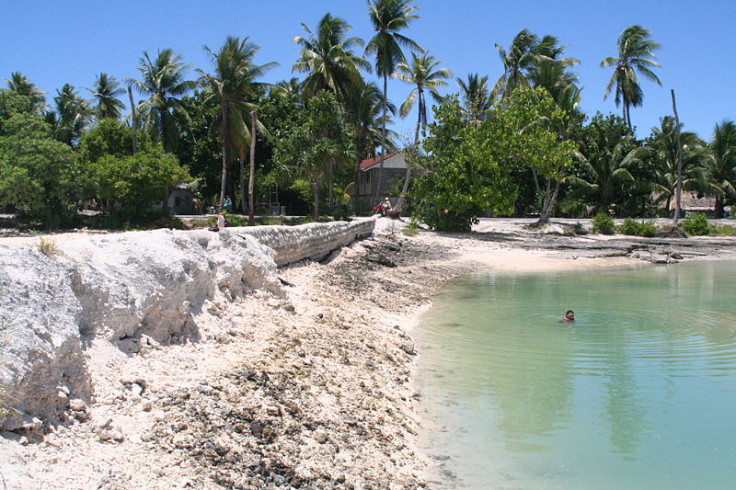Kiribati: World's First 'Climate Change Refugee' Ioane Teitiota Loses New Zealand Asylum Bid

The world's first "climate change refugee" has lost his asylum bid in New Zealand.
Ioane Teitiota would have become the first person in the world to claim asylum based on the effects of climate change had he been successful.
The fisherman comes from the low-lying South Pacific island nation of Kiribati, which scientists say is one of the most at risk of global warming in the world.
Kiribati is about halfway between Hawaii and Australia and has a population of just over 100,000. If oceans rise as much as one metre by the end of the century – as scientists predict they will – the island will be submerged in water.
Teitiota, 37, moved his wife and two small children to New Zealand in 2007, claiming the island is becoming too dangerous to live on because of the rising waters.
Immigration authorities twice rejected his argument of being a climate refugee, but Teitiota said they would take the case to New Zealand's High Court and Supreme Court if necessary, arguing: "There's no future for us when we go back to Kiribati, especially for my children. There's nothing for us there."
However, in a ruling at the Court of Appeal, the judge said the climate change claim was "fundamentally misconceived".

Teitioa and his family will now be deported. His New Zealand work visa expired in 2010.
The ruling said: "Although the Court has every sympathy with the people of Kiribati, Mr Teitiota's claim for recognition as a refugee is fundamentally misconceived. It attempts to stand the Convention on its head.
"The appellant raised an argument that the international community itself was tantamount to the 'persecutor' for the purposes of the Refugee Convention. This completely reverses the traditional refugee paradigm.
"Traditionally a refugee is fleeing his own government or a non-state actor from whom the government is unwilling or unable to protect him. Thus the claimant is seeking refuge within the very countries that are allegedly 'persecuting' him."
However, the court also noted that the effects of climate change are a growing concern: "No one should read this judgment as downplaying the importance of climate change. It is a major and growing concern for the international community. The point this judgment makes is that climate change and its effect on countries like Kiribati is not appropriately addressed under the Refugee Convention."
© Copyright IBTimes 2025. All rights reserved.






















